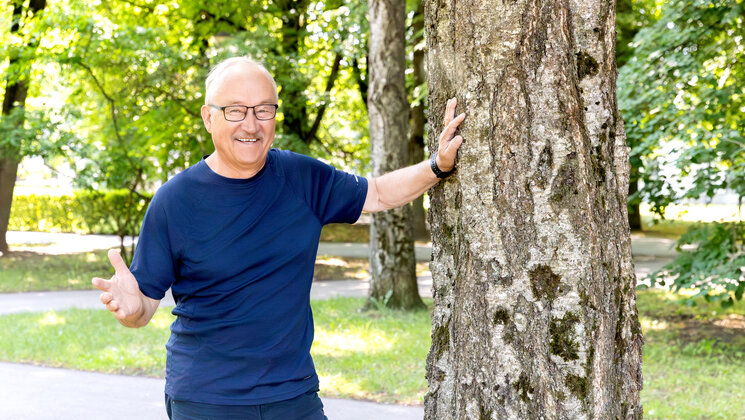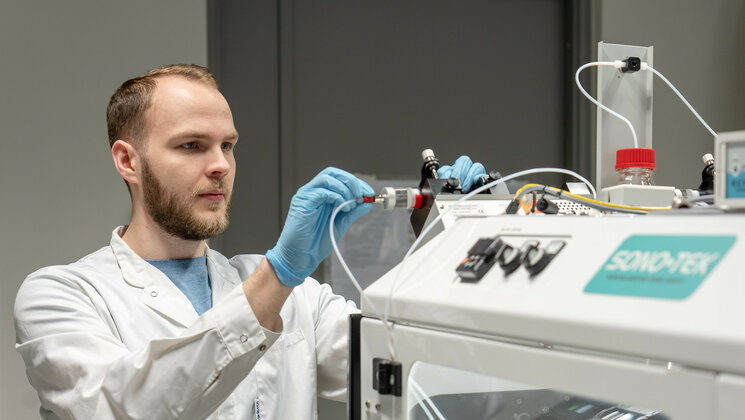Astronomer Tõnu Viik received lifetime achievement award for popularisation of science
This year’s Estonian national science communication awards were presented at the conference “Alternative methods in science communication” in Tallinn on 11 November. University of Tartu researchers won seven awards in the competition.
The Tiiu Sild memorial lifetime achievement award for long-standing and systematic popularisation of science and technology was granted to Tõnu Viik, long-time astronomer and scientific advisor at the Department of Stellar Physics of the University of Tartu Observatory at Tõravere.
Having worked in the field of astronomy for nearly 60 years, Viik has carried out top-level research and worked actively to make the observatory known in Estonia and other countries, and to make people aware how astronomical knowledge can help us understand life on Earth.
The best science and technology communicator prize was awarded to Jaan Aru, Associate Professor of Computational Neuroscience and Artificial Intelligence at the University of Tartu, who is able to present brain science in an engaging way to children and ministries alike, showing that knowledge about the brain can help us act more effectively.
The first prize for activities and series of activities to popularise science and technology was given to curators of the Voronja Gallery’s season 8 summer exhibition “Trinity – Science. Art. Fiction”, Tõnu Esko, Professor of Human Genomics, and Kaija Põhako-Esko, Associate Professor of Materials Chemistry of the University of Tartu, who succeeded in showing science from a novel perspective and bringing it closer to people who otherwise have no contact with science.
The second prize for popularisation of science and technology by means of audiovisual and electronic media was given to educational videos of basic school chemistry made by the Youth Academy of the University of Tartu and Joana Jõgela, Teacher in General Chemistry of the University of Tartu. The videos introduce sciences using exciting practical tips.
The second prize for popularisation of science and technology in writing was awarded to Ülar Allas, Consultant of the University of Tartu Institute of Computer Science, for the series of articles “Viruses and vaccines”. Allas was recognised for introducing the topical issue and for his fluent and enjoyable style.
The second prize for the best new initiative in popularising science and technology was presented to the Facebook initiative “Ask scientists everything about corona” (author of the idea Uku Haljasorg from the University of Tartu). Ten researchers of the university participated in the social media event from 15 to 19 March this year, answering people’s questions about anti-coronavirus vaccines and other virus-related questions received via Facebook and Novaator. The initiative to answer the questions stemmed from the young researchers’ wish to offer people evidence-based information via the everyday channel of communication, thus helping them better cope in the complicated situation and make reasonable choices.
The chair of the jury Ene Ergma, professor emerita of the University of Tartu, said that although the last two years have been hard, science communicators have been as active as ever. “This is proved by the more than fifty excellent nominees. It was difficult for the committee to choose among them, but I hope we made the best decision and the good science communicators were duly recognised,” she said.
The Estonian Association of Science Journalists also presented their Ökul Prize. The recipient of the title of the friend of science journalism and the Ökul Prize was Tuul Sepp, Associate Professor in Animal Ecology of the University of Tartu. She is known by science journalists as a good and articulate speaker in her field of research, immunoecology and ecophysiology, including on topics related to the impact of urbanisation or environmental pollution on animals. She does not have to be persuaded of the need for communication between researchers and the wider public. Besides doing outstanding research, Sepp has written books for children and their parents: popular science stories about birds and insects, fiction about fairies, and instructionally about bridge.
The Estonian national science communication awards aim to recognise people who popularise science, and to encourage to speak and write more about science and technology to the general public. Find the names of all recipients of the science communication awards on the website of Estonian Research Council.
The prize fund of the competition is 26,000 euros. The awards are funded by the Ministry of Education and Research and presented by the Estonian Research Council together with the Estonian Academy of Sciences.
Doctoral defence: Ahto Salumets “Bioinformatics analysis of various aspects in immunology“
On 3 May at 12:15, Ahto Salumets will defend his thesis "Bioinformatics analysis of various aspects in immunology“.


